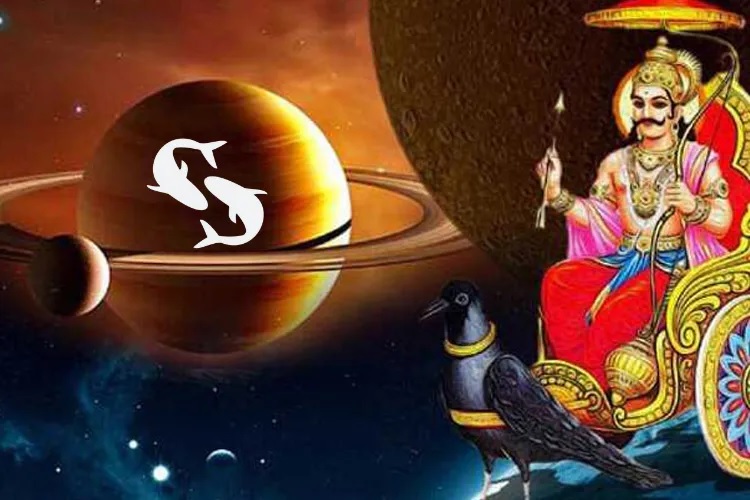Astrology
Sade-Sati: Always Bring Problems???
Sade-Sati: Always Bring Problems???
Sade-Sati is one of the most well-known and widely discussed astrological phenomena in Vedic astrology. It refers to the seven-and-a-half-year period during which the planet Saturn (Shani) transits over the 12th house, the 1st house (Moon sign), and the 2nd house from a person’s natal Moon. Many people believe that Sade-Sati brings misfortune, struggles, and setbacks, but this is not always the case. While Saturn is known as a strict taskmaster and a karmic planet, its influence during Sade-Sati can also lead to significant personal growth, maturity, and success, depending on various astrological factors.
What is Sade-Sati?
Sade-Sati begins when Saturn enters the zodiac sign just before the natal Moon sign. It lasts for approximately seven and a half years (hence the name "Sade-Sati," where "Sade" means half and "Sati" means seven). It is divided into three phases of about 2.5 years each:
1. First Phase: Saturn transits the 12th house from the Moon sign.
2. Second Phase: Saturn transits the Moon sign (considered the most intense phase).
3. Third Phase: Saturn transits the 2nd house from the Moon sign.
Each phase brings different effects, which can be challenging or rewarding based on the person’s birth chart, planetary aspects, and other influences.
Why is Sade-Sati Feared?
Saturn represents discipline, hard work, karma, and life lessons. It is a slow-moving planet, and its influence can feel heavy and restrictive. During Sade-Sati, individuals often face:
• Career setbacks or instability
• Financial problems
• Health issues
• Relationship conflicts
• Mental stress and emotional turmoil
Since Saturn is associated with karma, it tends to bring the consequences of past actions to the surface during Sade-Sati. This is why people often experience difficulties and obstacles during this period. However, it is not correct to assume that Sade-Sati only brings problems.
Understanding the Effects of Sade Sati
No, Sade Sati does not always bring problems.
Sade Sati can cause delays and obstacles for most individuals, but its impact varies depending on the person's birth chart and life stage. It occurs in three distinct rounds, each influencing different aspects of life.
1. First Round of Sade Sati
The first round typically occurs during childhood. It may bring health-related issues such as injuries to the legs, chickenpox, jaundice, and other childhood illnesses. However, this phase helps the body build immunity and resilience, teaching the individual how to manage health challenges early in life.
2. Second Round of Sade Sati
The second round usually takes place during middle age and, in most cases, results in career growth and financial success. Although there may be some delays and difficulties initially, this phase often brings professional recognition, increased income, and overall stability.
3. Third Round of Sade Sati
The third round generally occurs in the later part of life. It may lead to health issues, but it also helps the individual develop a deeper understanding of life and spirituality. Experiencing health challenges during this phase often strengthens faith in God and brings a realization of the temporary nature of human existence.
Life Lessons from Sade Sati
Every Sade Sati period, as well as the Saturn Mahadasha, offers valuable life lessons. An individual must remain aware and receptive to these lessons and apply them throughout life. The ability to recognize and act on these insights depends on the person’s intelligence and wisdom.
Some individuals who experience the combination of Saturn Mahadasha, Jupiter Antardasha, and Ketu Pratyantar Dasha may even attain spiritual enlightenment after enduring significant hardships.
Sade Sati Builds Maturity and Strength
Sade Sati serves to mature and strengthen an individual. It functions like a vaccine — though the process may be painful, the ultimate effect is protective and beneficial. Facing challenges during Sade Sati helps the individual build resilience and prepares them for future difficulties.
Managing the Effects of Sade Sati
To ease the challenges of Sade Sati or Saturn Mahadasha, individuals are advised to:
• Chant the Hanuman Stotra daily
• Maintain patience and persistence
• Seek guidance from elders or mentors
• Rely on hard work and disciplined effort
In difficult situations that seem beyond one’s control, patience and faith become crucial tools for overcoming adversity. The experience teaches how to handle similar situations later in life.
Exceptions and Special Cases
Although scriptures state that Sade Sati can be challenging for people born with Cancer and Leo ascendants (since Saturn is hostile toward the Sun and Moon), there are notable exceptions:
• If Saturn occupies the 3rd or 11th house
• If Saturn is under the beneficial aspect of Jupiter or Venus
• If the Lagnesh (Ascendant Lord) is strong
• If Saturn, even when positioned to create challenges, is conjunct with a benefic planet like Mercury (when it is unafflicted)
Factors Influencing the Outcome of Sade-Sati
The effects of Sade-Sati are not uniform for everyone. They depend on:
• Saturn’s placement in the birth chart (whether it is well-placed or afflicted)
• The strength of the Moon and other planets
• Aspects of benefic planets (like Jupiter) that may reduce the malefic effects of Saturn
• Dasha (planetary periods) running during Sade-Sati
For instance, if Saturn is exalted in the birth chart or has beneficial aspects, Sade-Sati can become a period of growth and transformation rather than a phase of suffering.
Disclaimer:
"The information provided on this Vedic astrology blog is for educational and informational purposes only. It is based on the principles of Vedic astrology and should not be considered as a substitute for professional advice. Vedic astrology is a complex and nuanced system, and interpretations can vary. The content presented here is based on general astrological principles and should not be taken as definitive or absolute predictions. Individual birth charts and other factors can significantly influence outcomes."
